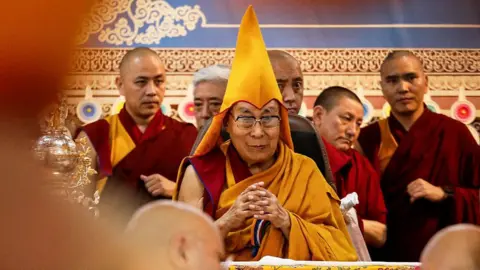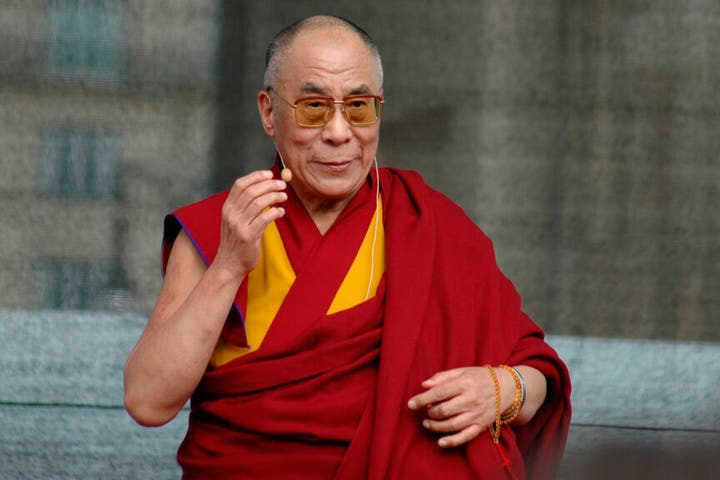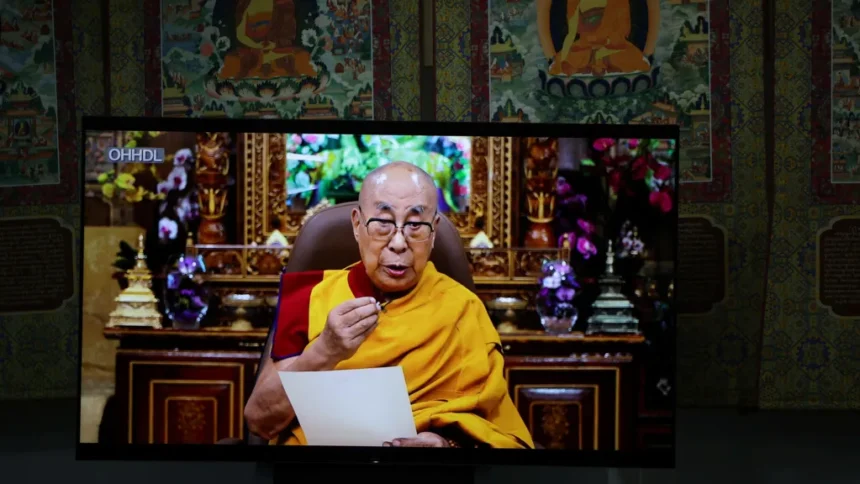Introduction
In a momentous announcement during his 90th birthday week, the 14th Dalai Lama confirmed that the 600-year-old tradition of appointing a reincarnated successor will continue. Speaking via video at the 15th Tibetan Religious Conference in Dharamshala, he declared that only the Gaden Phodrang Trust, which he founded, has the legitimate authority to identify the next Dalai Lama. This decision has sparked celebration among Tibetan followers and sharp backlash from China.

The Statement That Reshaped the Future
The Dalai Lama’s message ended years of uncertainty surrounding his reincarnation. He emphasized that “no one else has any authority to interfere” in the matter. This is a direct rebuttal of the Chinese government’s repeated claims that only it has the power to recognize reincarnated religious leaders within its territory.
The Role of the Gaden Phodrang Trust
Established by the Dalai Lama in 2011, the Gaden Phodrang Trust manages his administrative and spiritual affairs. The body will now also supervise the centuries-old reincarnation process. According to Tibetan tradition, a Dalai Lama is discovered through visions, signs, and recognition by spiritual leaders, not through government approval.
Why China Is Opposed
China annexed Tibet in the 1950s and views the Dalai Lama as a separatist. Beijing insists that the next reincarnation must be born in China and approved by its authorities. In response to the latest announcement, China’s foreign ministry reiterated that all reincarnations must follow “historical customs” and be sanctioned under Chinese law.
Celebrations in Dharamshala
The announcement was made during the Dalai Lama’s birthday celebrations in Dharamshala, attended by over 7,000 guests. The air was electric with joy and anticipation. Monks in maroon robes gathered at the Dalai Lama Library and Archive near the Tsuglagkhang temple to hear the announcement.
Hollywood actor Richard Gere, a long-time supporter of the Dalai Lama and advocate for Tibetan autonomy, was also present.
Public Reaction and Tibetan Support
Many exiled Tibetans expressed relief. “I always had belief in the reincarnation, but hearing it directly from His Holiness feels like a blessing,” said Tsayang Gyatso, who traveled from Delhi. Other attendees echoed the sentiment that China’s attempt to politicize the spiritual process had failed to win hearts.

Global Implications
This spiritual decision carries geopolitical weight. Scholars like Robert Barnett suggest the move is also a signal to China, affirming that the legitimacy of the next Dalai Lama will come from within the Tibetan community and not be dictated by any government.
Meanwhile, Professor Dibyesh Anand from the University of Westminster warned that China may still install its own rival Dalai Lama, leading to a future with “two claimants” to the title — one accepted by Tibetans and the global Buddhist community, the other imposed by the Chinese state.
The Middle Way Continues
The Dalai Lama has long advocated the “middle way,” a peaceful resolution allowing Tibet genuine autonomy within China. While Beijing has rejected this model, his succession plan reaffirms Tibetan resistance through non-violent spiritual preservation rather than political aggression.
For context on similar spiritual issues, check our article on Tibetan exile identity and the challenges of cultural survival.

Conclusion
The Dalai Lama’s confirmation of a successor through the Gaden Phodrang Trust reinforces the spiritual and cultural resilience of the Tibetan people. It challenges external interference and upholds centuries-old Buddhist tradition. As China continues to assert its influence, the world watches closely to see how this spiritual succession plays out. For the Tibetan community, this was not just a birthday announcement — it was a reaffirmation of identity, sovereignty, and faith.
Follow The Morning News Informer for in-depth coverage of spiritual leadership and global politics.










